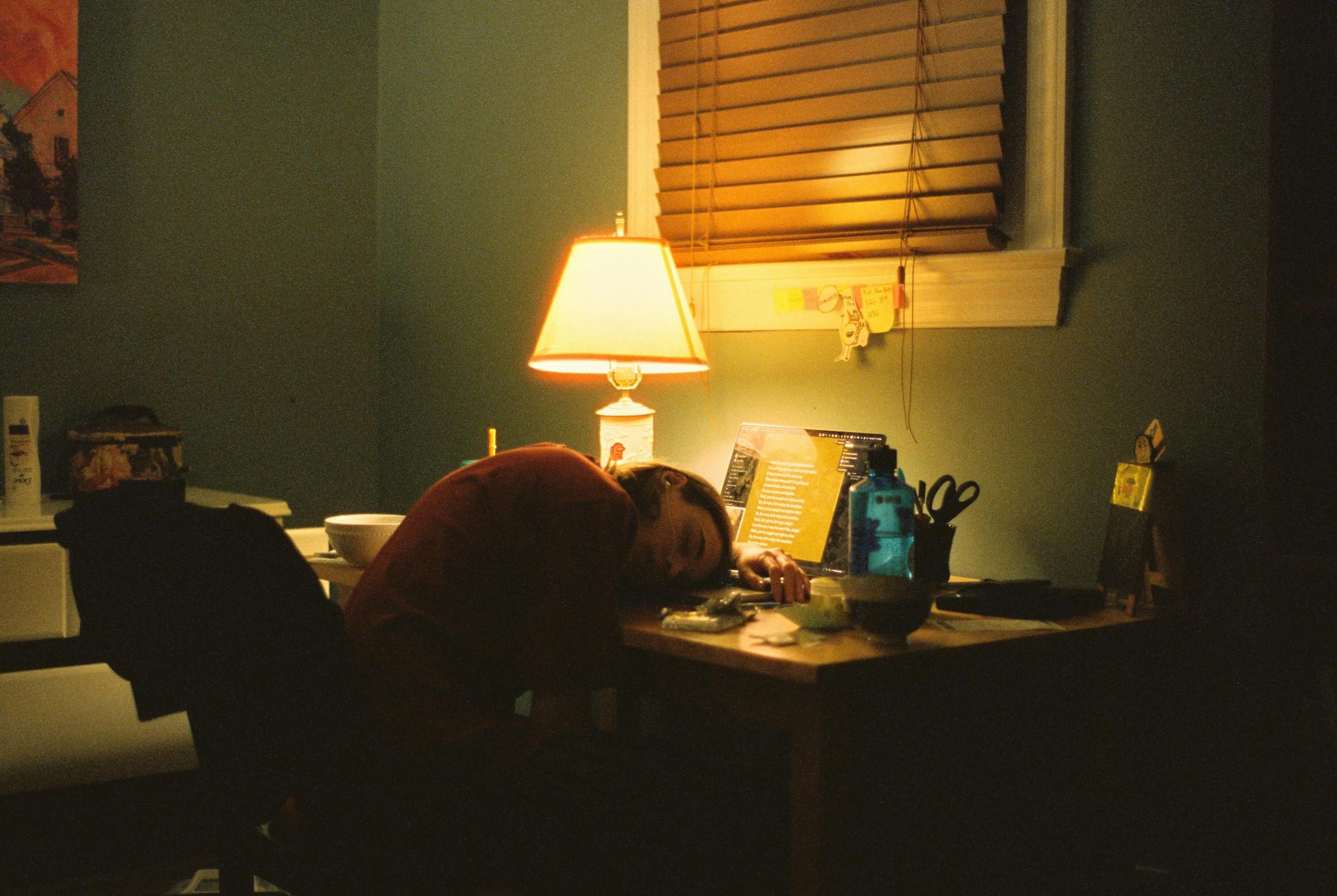How to Get More Deep Sleep: Proven Tips for a Restful Night (Backed by Science)
By Dr. Priyali Singh, MD
Reviewed by Dr. Jossy Onwude, MD
Published Jul 11, 2025
9 min read

Getting enough sleep isn’t just about the number of hours you spend in bed—it’s also about the quality of that sleep. And when we talk about sleep quality, one of the most important components is something called deep sleep.
Deep sleep is the stage of sleep that your body uses to recover, repair, and recharge. If you've ever woken up feeling groggy even after sleeping eight hours, chances are you didn’t get enough deep sleep. In this guide, you’ll learn what deep sleep really is, why it matters, how to know if you’re not getting enough of it, and most importantly, what you can do to naturally increase your deep sleep starting tonight.
Let’s break it all down.
Why Deep Sleep Is More Important Than You Think
Every night, your body goes through different stages of sleep. These stages include light sleep, REM sleep (when dreaming happens), and deep sleep, which is also known as slow-wave sleep or Stage 3 non-REM sleep.
While all stages of sleep are important, deep sleep is when the body does most of its physical repair work. During this phase, your brain waves slow down, your muscles relax, your breathing becomes steady, and your body focuses on healing itself. This is the time when your immune system strengthens, your tissues and muscles rebuild, and your brain clears out toxins that have built up during the day.
Think of deep sleep as your body’s natural reset button.
Without enough of it, you’re not just tired—you’re also more likely to get sick, struggle with memory, feel anxious or depressed, and even gain weight. Deep sleep isn’t just about feeling well-rested. It’s about staying well.
What Exactly Is Deep Sleep?
Let’s look a bit closer at what deep sleep actually is. Sleep scientists divide your sleep into several stages that cycle throughout the night. These are usually grouped into non-REM (non-rapid eye movement) sleep and REM (rapid eye movement) sleep.
Deep sleep is the third stage of non-REM sleep. It usually happens more in the first half of the night, especially during the first few sleep cycles. During this stage, your brain produces slow, high-amplitude delta waves. Your heart rate, breathing, and body temperature all drop to their lowest levels.
This is the most restorative sleep stage. While REM sleep helps your brain sort memories and emotions, deep sleep is when your body does its heavy lifting: repairing tissues, releasing growth hormones, and refreshing your energy for the next day.
For most adults, deep sleep makes up about 13% to 23% of total sleep time. So if you sleep 8 hours, that’s roughly 60 to 110 minutes of deep sleep.
How to Tell If You’re Not Getting Enough Deep Sleep
It’s easy to overlook poor deep sleep because you might still be “getting enough sleep” overall. But if you wake up feeling sluggish, groggy, or mentally foggy, even after a full night’s rest, that could be a red flag.

Common signs you’re not getting enough deep sleep include:
- Waking up tired or unrested
- Struggling to focus or remember things
- Feeling unusually emotional or irritable
- Getting sick more often
- Needing caffeine to get through the day
Your body is always sending you signals. If you’re dragging through your days, even though you’re technically sleeping long enough, the quality of that sleep might be the issue—specifically the amount of deep sleep you’re getting.
Can You Track Deep Sleep? Yes—And It’s Easier Than Ever
One way to better understand your sleep quality is to use a sleep tracker. Today’s wearables, like the Oura Ring, WHOOP strap, Apple Watch, and Fitbit, use a mix of movement, heart rate, and temperature data to estimate how much deep sleep you’re getting each night.
While these trackers aren’t 100% accurate in measuring exact sleep stages (that would require an EEG in a lab), they are great for spotting trends. If your tracker shows consistently low deep sleep—say under 50 minutes—it could be a sign that your sleep habits need tweaking.
Don’t get too hung up on the exact numbers. Instead, look for patterns. Are you getting more deep sleep on days you work out or avoid caffeine? That’s valuable insight.
How to Get More Deep Sleep: Simple Habits That Work
Now for the part you’ve been waiting for: how to actually increase your deep sleep. The good news is that you don’t need expensive gadgets or fancy supplements to sleep deeper. In most cases, small changes to your lifestyle and sleep routine can make a huge difference.
Let’s explore the most effective ways to naturally improve deep sleep, backed by research and real-world results.
1. Stick to a Consistent Sleep Schedule
Your body runs on an internal clock, known as your circadian rhythm. This rhythm thrives on routine. When you go to bed and wake up at the same time every day—even on weekends—you train your body to enter deep sleep more efficiently.
Inconsistent sleep times confuse your body and make it harder to reach and maintain deep sleep. Even a shift of 1–2 hours can throw things off. Aim for consistency, even if it means going to bed 15 minutes earlier each night until you hit your ideal schedule.
2. Make Your Bedroom a Deep Sleep Zone
Your sleep environment plays a huge role in the quality of your rest. A cool, dark, quiet, and comfortable room tells your brain it’s time to power down.
Start by lowering the temperature—between 60 to 67°F (16 to 19°C) is ideal. Darkness matters too, because even small amounts of light (like from a phone or streetlamp) can interrupt melatonin production. Use blackout curtains or a sleep mask if needed. And if noise is a problem, try earplugs or white noise machines.
Also, invest in a mattress and pillow that support your body well. Discomfort is one of the biggest barriers to deep, uninterrupted sleep.
3. Cut Off Caffeine and Alcohol Early
Caffeine can stay in your system for up to 8 hours, even if you don’t feel wired. That afternoon coffee or energy drink may be robbing you of deep sleep later without you realizing it. Try cutting off caffeine after 1 or 2 p.m., and see how your sleep responds.
Alcohol is even trickier. It might make you fall asleep faster, but it disrupts the natural rhythm of your sleep cycles—especially deep sleep. If you drink, do it earlier in the evening and in moderation.
4. Avoid Heavy Meals Right Before Bed
Eating a big or rich meal too close to bedtime forces your digestive system to stay active while your body’s trying to rest. That conflict can reduce the amount of deep sleep you get.
Try to finish eating at least 2–3 hours before bed, and keep late-night snacks light. A small serving of foods that naturally support sleep—like bananas, tart cherries, or oatmeal—can be helpful if you're slightly hungry.
5. Move Your Body During the Day
Exercise is one of the most powerful tools for boosting deep sleep. When your body is physically tired, it’s more eager to enter the restorative stages of sleep.
Regular aerobic activity (like walking, swimming, or cycling) has been shown to increase deep sleep time. Strength training also helps. Just avoid working out too close to bedtime—especially intense sessions—as that can keep your body too energized to fall into deep sleep quickly.
Aim for at least 30 minutes of movement most days. Even a walk after dinner can make a difference.
6. Create a Bedtime Routine That Signals "Sleep Time"

Your body responds well to routines. A calming ritual before bed helps shift your brain from “day mode” to “night mode.” This transition is important for easing into deep sleep.
About 30–60 minutes before bed, start winding down. Dim the lights, put your phone away, and do something relaxing. Read a book, stretch, meditate, take a warm bath, or listen to calming music.
This routine trains your brain to associate these actions with sleep, making it easier to drift into deeper stages once your head hits the pillow.
7. Be Smart with Screens at Night
Blue light from phones, TVs, and computers tricks your brain into thinking it’s still daytime, which blocks melatonin production. This can delay sleep and reduce the quality of your deep sleep once you finally do fall asleep.
Try to avoid screens for at least 60 minutes before bed. If you must use them, activate a blue light filter or wear blue-light-blocking glasses. Many devices now have “Night Shift” or “Eye Comfort” modes that automatically reduce blue light after sunset.
What If You’re Still Struggling with Deep Sleep?
If you’ve tried improving your habits and you’re still not feeling rested, there could be a deeper issue. Medical conditions like sleep apnea, chronic insomnia, restless leg syndrome, or depression and anxiety can all interfere with deep sleep.
In these cases, it’s worth speaking with a doctor or sleep specialist. They may recommend a sleep study to measure your brain waves, breathing, and movements overnight. Identifying and treating these issues can unlock better deep sleep—and overall health.
Can Supplements Help Deepen Sleep?
Some people turn to supplements to improve their sleep quality. While they’re not magic pills, a few natural options may support better deep sleep when used wisely.
Magnesium, especially magnesium glycinate or citrate, is known to relax muscles and the nervous system. Glycine is an amino acid that helps lower body temperature and promote deeper sleep. L-theanine (from green tea) may help calm the mind before bed. Adaptogens like ashwagandha can lower stress levels, which may indirectly improve deep sleep.
Melatonin can help reset your body clock if you're jet lagged or shifting your sleep schedule, but it’s best used occasionally—not as a nightly habit.
Always talk to your doctor before adding new supplements, especially if you’re taking medications or have a health condition.
Advanced Techniques to Try (If You Want to Go Deeper)
If you’ve got the basics down and want to explore more advanced ways to support deep sleep, you might experiment with:
- Red light therapy in the evening to stimulate melatonin
- Cold showers or sauna use to help regulate body temperature
- Binaural beats or white noise to help relax your brain into slower waves
- Weighted blankets to reduce anxiety and promote relaxation
These techniques aren’t essential, but some people find them helpful. Just remember that the foundation—routine, sleep hygiene, diet, exercise—matters most.
Final Thoughts: Small Changes, Big Impact
Getting more deep sleep isn’t about finding a quick fix—it’s about making small, consistent changes that signal to your body, “It’s safe to rest now.” From setting a regular bedtime and adjusting your evening routine, to optimizing your environment and supporting your body’s natural rhythms, every little step adds up.
When you improve your deep sleep, you’re not just improving your nights—you’re improving your days, your energy, your mood, your focus, and your long-term health.
So tonight, put the phone away a little earlier, dim the lights, and give your body the rest it truly needs.
Share this article

Estrogen Patch Benefits for Menopause: Uses, Safety, and What to Know
Editorial Team
Jan 29, 20266 min read

Oral Tirzepatide Drops: What They Are, How They Work, and What to Know
Dr. Priyali Singh, MD
Jan 28, 20265 min read

How to Increase Estrogen Naturally: What Works, What Doesn’t, and When to Get Help
Dr. Priyali Singh, MD
Jan 27, 20266 min read

Best-in-class care is a click away
Find everything and everyone you need to reach your metabolic health goals, in one place. It all makes sense with Meto.
Join Meto